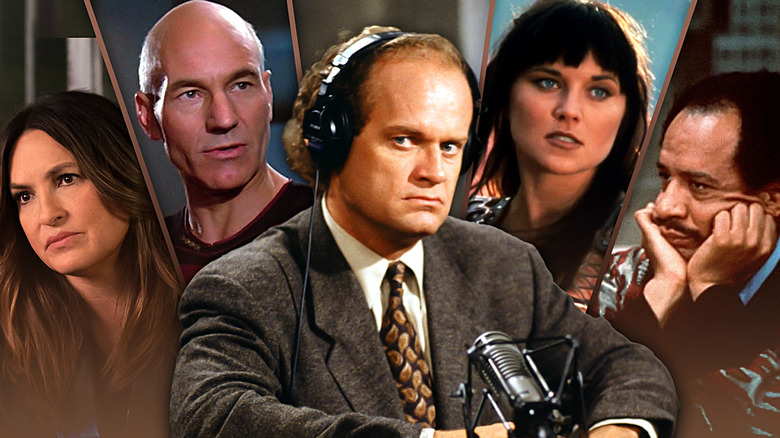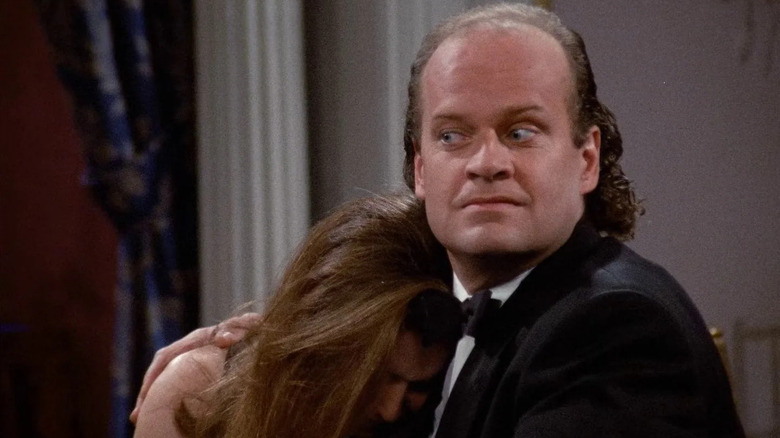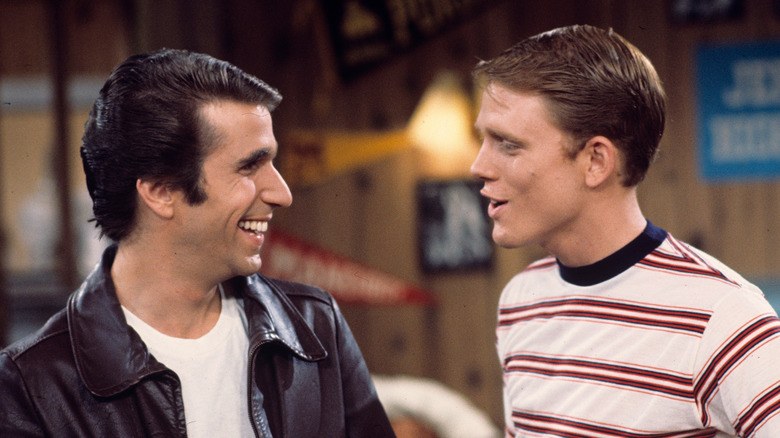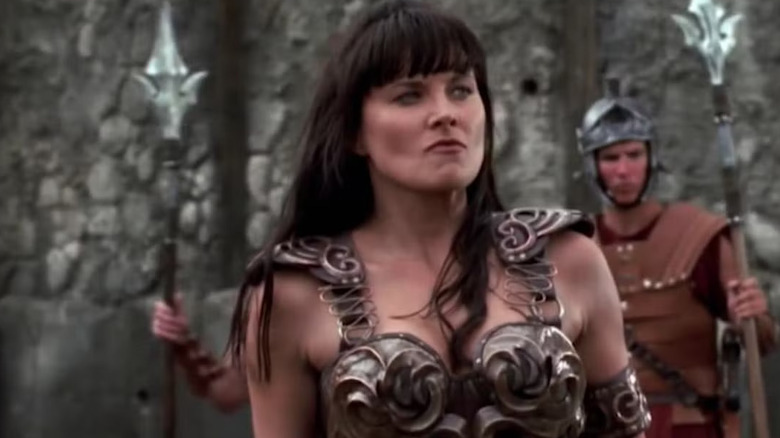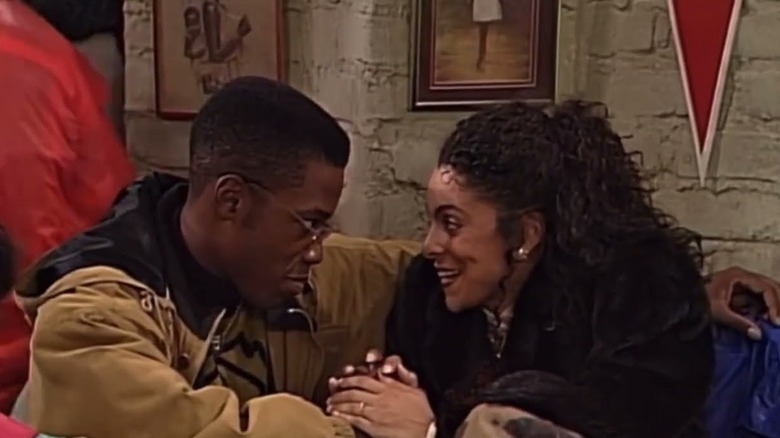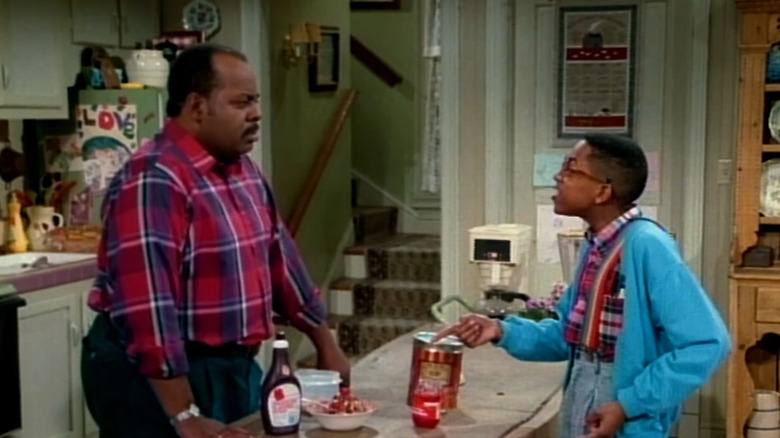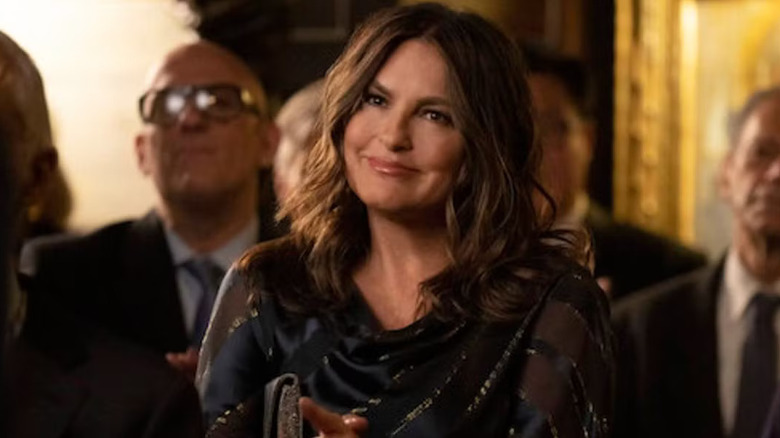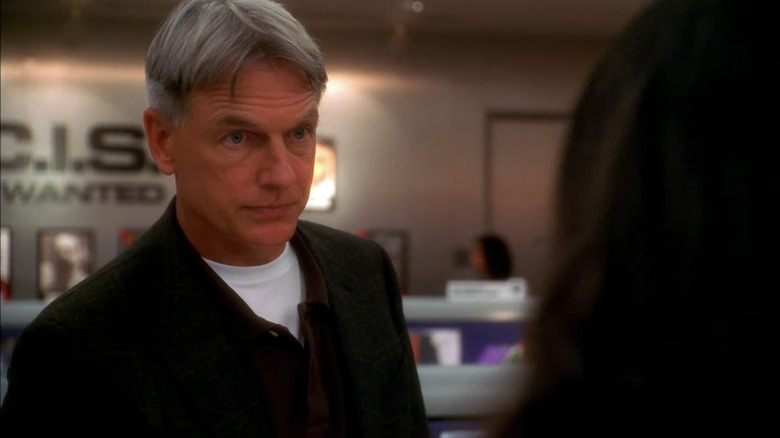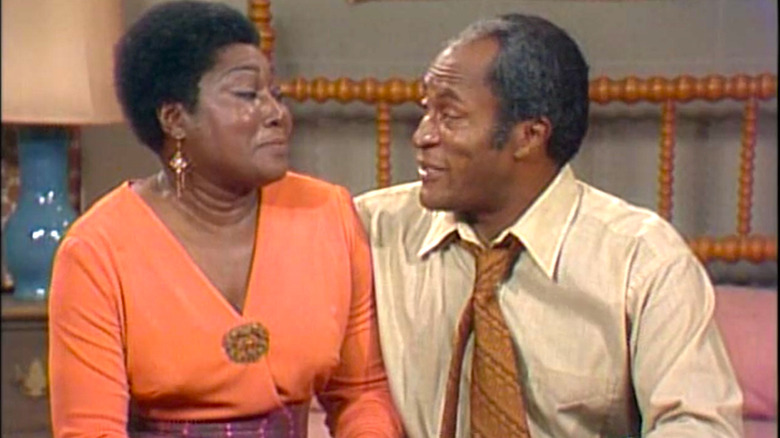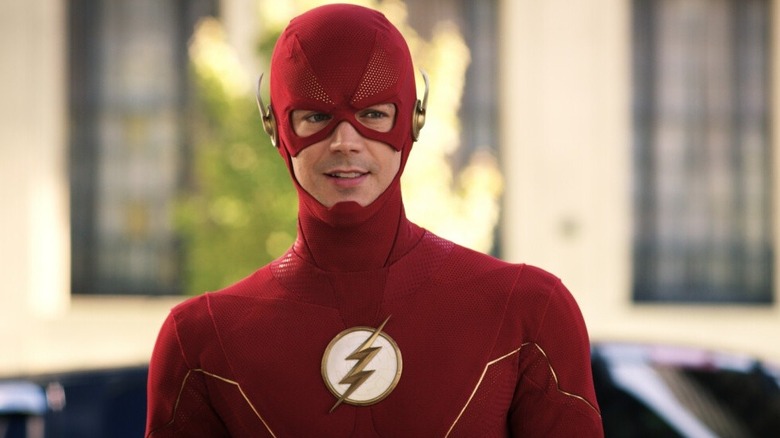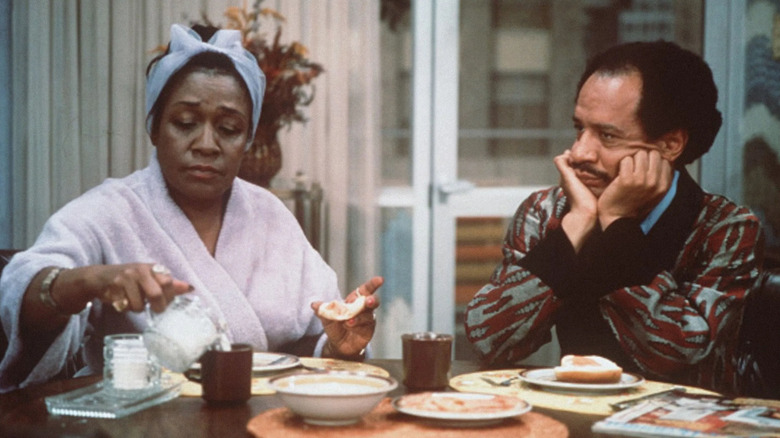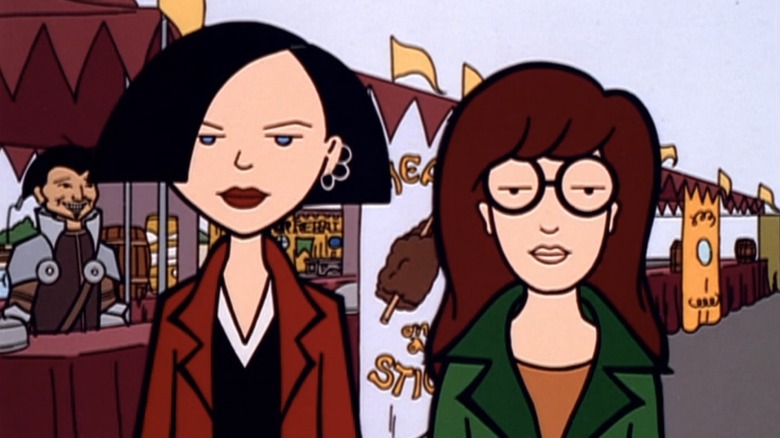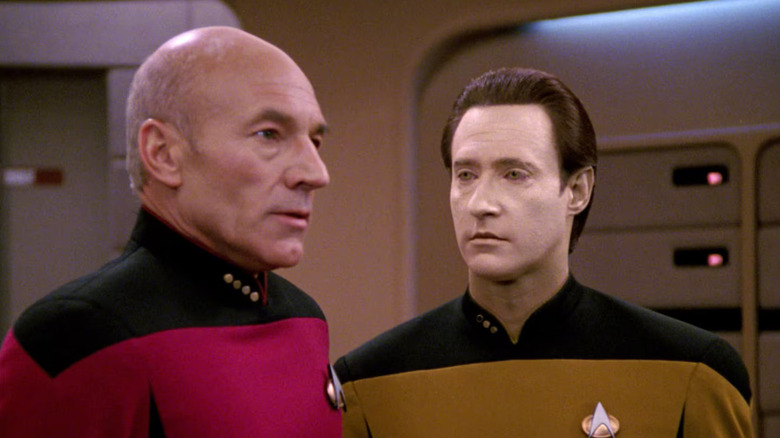12 Spin-Offs That Are Better Than The Original Series
The television spin-off is a tricky venture to pull off. Planned or not, the writers must create an interesting character that audiences want to invest in, and the actors have to have enough charisma to bring the roles to life. The pressure is even higher if that job rests on one actor. Once the spin-off hits the air, actors and crew have to work to make the series at least as good as the parent show. This is where many spin-offs fail. However, there are a select few who rose to not only the same level as their original shows, but a step above.
On this list, we won't be including shows that are arguably as good as their predecessors, such as "Better Call Saul," "Batman Beyond," or "House of the Dragon." Instead, this list celebrates the TV shows that truly transcended their pilot projects, either in quality or popularity.
Here are 12 spin-offs that are better than the original series.
Frasier
One of the most memorable and successful spin-offs of all-time, "Frasier" toppled the quality of the series it came from, "Cheers." Dr. Frasier Crane was originally meant to appear only in a handful of "Cheers" episodes, but Kelsey Grammer's performance was so impressive that producers integrated him more prominently throughout the series. Grammer's storylines grew so significant that he was given a spin-off in a new setting, Frasier's hometown of Seattle.
"Frasier" stands tall as one of the best sitcoms of all time due to the sharpness of its humor. Due to the intellectual nature of Frasier and his brother Niles' (David Hyde Pierce) jobs as psychiatrists, the writers could playfully incorporate sophisticated, highbrow humor. The writing was also smart in the way that it used other characters' personalities to foil Frasier and Niles, incorporating lowbrow humor for comedic tension. As a transplant Seattleite, I must also say that the series does a great job poking fun at the awkward, standoffish nature of natives, especially white collar residents. The dry humor displayed by Frasier just makes sense if you've spent an extended amount of time in the Evergreen State.
The staying power of the series led to a revival in 2023. It wasn't a particularly remarkable return to prime "Frasier," but it wasn't objectionable, either.
Happy Days
By today's standards, "Happy Days" is an unconventional spin-off. The show began as an unsold pilot on the ABC anthology series "Love, American Style" under the moniker "Love and the Television Set." Director George Lucas liked the performance of Ron Howard in the pilot, and cast him in his film "American Graffiti." Howard's performance in that film reignited interest in the pilot, and it was eventually picked up and renamed "Happy Days." While early seasons of the show focused on Howard's character, Richie Cunningham, the show's signature character would eventually become Arthur Fonzarelli, aka "Fonzie" or "The Fonz."
"Happy Days" is better than its parent series because it featured character archetypes that would appear across various shows and films in the following decades. The wannabe cool guy (Richie), the bad boy (Fonzie), the girl-obsessed clown (Ralph Malph), and the nerd (Potsie Weber). The Midwest setting as well evoked a down-to-earth feel that teen media of the '80s and '90s would try to emulate. If nothing else, "Happy Days" gave us the term "jumping the shark," i.e. a moment or season that arguably ruins the entire TV show. The phrase references the scene in season five where Fonzie jumps over a shark on water skis. A scene etched in infamy, it marked the moment for "Happy Days" fans when the series became more about sensationalism to stay on air rather than creating interesting (or funny) narratives.
Though never a critical success, "Happy Days" exceeds "Love, American Style" simply for its high-profile standing in TV history. It also yielded its own spin-offs with "Laverne & Shirley" and "Mork & Mindy."
Xena: Warrior Princess
Originally appearing in "Hercules: The Legendary Journeys" for a three-episode arc, Xena made such an impact with audiences that a spin-off was created for her: "Xena: Warrior Princess." Not since the series' end have we seen an originally-conceived female superhero; that fact alone makes it stand above "Hercules." Xena, as a series and character, represented a convergence of male and female audiences uncommon for '90s media. It had action, emotion, and complex interpersonal relationships that spoke to viewers more than "Hercules."
Not only that, but the show is also beloved by the queer community, a fact that Lucy Lawless has proudly embraced. The companionship between Xena and Gabrielle (Renee O'Connor) became a phenomenon with lesbian fans who saw the two as lovers. Lawless herself acknowledged the clear connection between Xena and Gabrielle and stated in a 2003 issue of "Out" magazine that she even thought the two were in love. With the eventual development of comics, books, and games around "Xena," the series undoubtedly had a richer canon for fans to engage with compared to its predecessor.
A Different World
Beginning as a vehicle for Lisa Bonet's "Cosby Show" character Denise Huxtable to continue her story in college, the first season of "A Different World" had a much different focus than the subsequent seasons. It was initially intended to explore the dynamics of a white student attending an HBCU (historically Black college or university) alongside her Black friend, Denise. But, Lisa Bonet fell pregnant (yes, with Zoe Kravitz), and at Bill Cosby's command was written out of the show. At the same time, Cosby got wind of the show inaccurately portraying Black college life in season one. He enlisted Debbie Allen -– dance/producing legend and Howard University alumna –- to inject new life into the series. With Denise gone, the lead became Jasmine Guy as prissy Southern belle Whitley Gilbert.
Under Allen's direction, the show blossomed. Unlike "The Cosby Show," "A Different World" actually addressed social issues head on. In nearly every episode, the characters engaged in spirited debates about gender roles, racism, class, and Black identity. It featured episodes about rape, the Los Angeles riots, and even a character with AIDS, the latter of which had scarcely been done on TV to that point. It basically created the blueprint for the college sitcom. Sure, "The Cosby Show" understandably has historical significance for Black characters on TV. However, in terms of substance and fleshed out characters, "A Different World" is far and away the better show.
Family Matters
There are a few parallels between "Family Matters" and earlier entrant on this list, "Happy Days." Both were spin-offs, both featured a supporting character that would ultimately take center stage, and both jumped the shark in their own way.
In the case of "Family Matters," matriarch Harriette Winslow (Jo-Marie Payton) was originally an elevator operator on "Perfect Strangers." Eventually, her husband Carl (Reginald VelJohnson) made an appearance, and the duo's comedic charm earned the actors their own show. "Family Matters" ran for basically the entire '90s decade and ran in syndication well into the 2000s. The show's staying power makes it much more memorable than "Perfect Strangers."
Why was it memorable? I'm sure you know the answer –- or rather the question: "Did I do that?" Steve Urkel (Jaleel White) became synonymous with not only the show, but the concept of "nerd" entirely. White's physical humor as Urkel is unforgettable, and fan enthusiasm for the character catapulted him from recurring to main character pretty quickly. This fact is a double-edged sword in the legacy of the show; Urkel's huge impact overshadows the serviceable storytelling on the show (well, before it entered fantasy territory with things like clones). True to its title, the series was another positive portrayal of a Black middle class family. That deserves recognition beyond the show's nasally-voiced lead.
Law & Order: SVU
At the 2025 SAG Awards, presenters Keke Palmer and Colman Domingo asked celebrity attendees to take a drink if they'd ever guest starred on "Law & Order: SVU." Nearly the whole room took a swig. That is the power of this franchise, but specifically this spin-off. Though it's hard to believe there was a "Law & Order" prior to "SVU," the original did exist for 9 whole years before the latter premiered in 1999. In the quarter century since "SVU" debuted, everyone who's anyone in Hollywood has guest starred in at least one episode of the show. Many actors even started their careers on "Law & Order." It has been a welcoming launching pad for actors of all ages to flex their dramatic skills.
More than that, "SVU" perfected the crime procedural genre, creating hundreds of enthralling episodes that could stop you in your tracks flipping through channels (well, when we used to do that). The subject matter of the show, that of sex-based crimes usually centering women and children, attracted more interest and empathy from the public than the original "Law & Order." In an insidious way, the series also created a voyeuristic investment in the idea of women as victims that paved the way for an explosion of true crime media. Despite that, it must be said that without a woman at the center of the show in Mariska Hargitay, "SVU" could come across very cold. But Hargitay brings the right balance of ferocity and empathy that helps viewers feel guided, even comforted, by the procedural style.
NCIS
Yet another comfort crime procedural, "NCIS" is a spin-off of the forgotten CBS series "JAG." Surprisingly, the characters that would star in "NCIS" appeared pretty late into "JAG's" run, with Leroy Gibbs' (Mark Harmon) team of special agents showing up in season eight. The NCIS team's two-episode arc served as the backdoor pilot for the spin-off, and the rest is history.
Debuting four years after "SVU," "NCIS" added another flavor to the crime procedural genre: the military. If there's two things Americans love, it's crime and the military, so combining them into a delicious platter of weekly whodunits was sure to be a hit on U.S. television. Though the show's audience skews older, that fact hasn't harmed its success. The series is still going strong after more than 20 years, led by the face of the franchise, Mark Harmon. While the veteran performer may have stepped down from the flagship series, he narrates the prequel series "NCIS: Origins."
Good Times
Another series with an interesting inception, "Good Times" was a spin-off only on a technicality. Florida Evans (Esther Rolle) first appeared on "Maude," the Norman Lear sitcom starring Bea Arthur prior to her signature role in "The Golden Girls." Set in New York, Florida was a housekeeper for Maude, while her husband Henry (later renamed James for "Good Times") was a firefighter. They were middle-class on "Maude," but in order to fit the already-conceived synopsis of "Good Times," Florida and Henry's backstories were completely erased. In the canon of "Good Times," Florida and James were always poor and living in the Chicago housing projects, and Florida never worked for Maude.
The enduring popularity of the show for decades makes it a standout in TV history. "Good Times" simply resonated with the intended audience more, the same of which couldn't be said for "Maude." The series dealt with social issues (as was par for the course with Norman Lear shows), but the family's lower-class status meant that their issues were unique to their circumstances. "Good Times" dealt with gang violence, petty theft, child abuse, evictions, and the sheer desperation of wanting a better life for oneself. The show was also the first to feature a Black father in the home, a feature of the Evans family that Rolle had to fight for. Before Cliff Huxtable, James Evans was the father that Black families took pride in during an era where single Black motherhood was the default depiction in media.
The Flash
Before DC's comeback at the movie theaters with James Gunn's "Superman," one hero was carrying the credibility of the comic universe on his back, and doing it on the small screen.
"The Flash" was the crown jewel of the Arrowverse during the prime of The CW network. So much so that it eclipsed the namesake of the universe, "Arrow." Grant's Gustin Barry Allen originally appeared on "Arrow" in the early episodes, but plans were always to give the hero his own spin-off. With the success of "The Flash," The CW cemented itself as the home for DC's television universe, a beacon for the comic empire during a time when Marvel was kicking their butt at the movies.
There was so much to love about "The Flash." It was great to see a concerted effort in building the world of a non-Big Three (Batman, Superman, Wonder Woman) DC hero. The series did an excellent job balancing the serious and the lighthearted –- audiences could really buy into the stakes of saving the world from villainy, but in between there was enough levity and heart to provide almost a sitcom feel. The cast also had great onscreen rapport that made audiences believe that they cared for one another. Bringing everything together was the fantastic chemistry between Gustin and Candace Patton as Barry and Iris West-Allen. Their relationship was the center of the show's universe; it's the one element of "The Flash" that "Arrow" never had. "The Flash" not only had superhero action, but a romance for viewers to root for. A little love goes a long way.
The Jeffersons
Yet another spin-off in the Norman Lear universe of shows, "The Jeffersons" is better than the original Lear comedy "All in the Family" because the characters were more vibrant. When you think of "All in the Family," be honest –- you only remember Archie Bunker. When you think of "The Jeffersons," you think of the comedic chemistry between George (Sherman Hemsley) and Weezie Jefferson (Isabel Sanford) and the sharp wit of Florence Johnston (Marla Gibbs). It isn't a stretch to say that without Gibbs' fantastic performance as Florence, we might not have gotten Geoffrey in "The Fresh Prince of Bel-Air."
Similarly to "All in the Family," "The Jeffersons" dealt with social issues humorously, such as racism, gun violence, and substance abuse. You'd be shocked to learn that the series featured one of television's earliest depictions of a trans person -– and perhaps even more shocked to learn the representation wasn't egregious but humanizing (even by today's standards, it could have been far worse!). "The Jeffersons" is a cut above "All in the Family" because it did many of the same things that the latter did, but with a stronger cast to carry the comedic notes of the series. That, and the theme song is a knee-slapper.
Daria
Sure, the average person is more likely to have heard of "Beavis and Butt-Head" over "Daria." This fact is helped by creator Mike Judge's recent projects bringing "Beavis and Butt-Head" into the modern era. Still, in terms of quality, "Daria" is the better show. It doesn't need to be modernized because, for the most part, the show's commentary on society and teen life holds up decades later.
Daria Morgendorffer was a recurring character on "Beavis and Butt-Head," serving as a hyper-intelligent foil to the titular friends', uh, let's say dense sense of humor. This thematic foiling is what made "Daria" a sustainable spin-off –- the writers simply added several other characters to bring that dimwitted energy in place of Butt-Head and Beavis. "Daria" is superior to Mike Judge's buddy comedy because every character, even the ditzy ones, are given complexity. Viewers could laugh at Brittany and Quinn and The Fashion Club, but also feel a range of emotions from empathy to pity as their backstories unfolded. Even as she is the title character, Daria was not the only memorable one. That aspect of the series makes it a satisfying, fully fleshed-out spin-off.
Star Trek: The Next Generation
Other than being one of the best TV shows of the '90s, "Star Trek: The Next Generation" is also one of the greatest spin-offs. Following "The Original Series," it introduced a new crew, which took some getting used to for older fans. Even today, Trekkies debate whether "TNG" is better than the original show. Fan mileage may vary, but just by a hair, "TNG" is superior to "The Original Series" for a few reasons.
First is that "TNG" still holds up today. There are few tone deaf storylines or portrayals like women wearing skimpy clothing, an issue that led Teri Garr to walk off set. The storylines are complex and the acting less theatrical than the original. It's an easier watch. Second, it reinvigorated the franchise and got more people into the fandom. While fans agree Kirk, Spock, and McCoy's adventures are foundational, it's undeniable that Picard and his crew elevated the sci-fi genre to a respectable place in pop culture. Lastly, "The Next Generation" was a better foundation for the spinoffs that followed it like "Deep Space Nine" (which some feel is even better than "TNG"). It had more episodes and thus was expansive in a way that could be built upon, which wasn't as much the case with "The Original Series."
Put simply: if you're a Trekkie and you had one shot to convince someone the artistic merit of the "Star Trek" TV universe, you would show them "The Next Generation."
